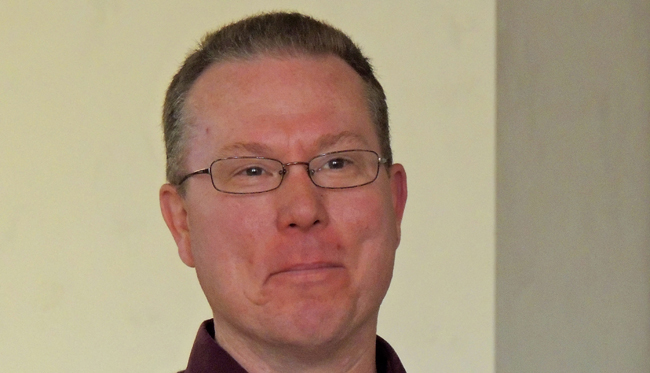Decolonization a daily chore

By Christine Smith (McFarlane)
TORONTO – Being Indigenous requires a daily struggle to resist colonization.
That was the message Dr. Jeff Corntassel brought to the 2013-2014 Speaker Series by the Centre for Aboriginal Initiatives at the University of Toronto. A recognized member of the Cherokee Nation and an Assistant Professor and Graduate Advisor for the Indigenous Governance Programs at the University of Victoria, Corntassel’s talk “Our Ways Will Continue On: Re-envisioning Indigenous Governance, Leadership and Resurgence,” challenged students to look at themselves and ask “how will your ancestors and future generations recognize you as Indigenous?”
Corntassel’s research background has focused on American Indigenous policy and how it has shifted from self-determination to “forced federalism”.
“I explore Indigenous pathways to decolonization and resurgence with an emphasis on identifying everyday practices of renewal and responsibility within native communities today,” he says. “I do this by drawing on several comparative examples of resurgence from the Cherokees in Kituwah (an ancient Cherokee settlement), Lekwungen protection of camas (a starchy food source, the Nishnaabe-kwe “Water Walkers” movement, and Kanaka Maoli (Native Hawaiian) revitalization of kalo (primary plant food source).
“I am also looking at Indigenous approaches to sustainability and what it looks like from an Indigenous perspective, and it’s a work in progress because this area varies from nation to nation. The challenge for me is how to make it relatable for everyone because I’m interested in how the term is not only used politically but also is there a way to claim it or reclaim it in ways that are useful to all of us as Indigenous peoples.”
Corntassel suggests that being Indigenous today means struggling to reclaim and regenerate one’s relational, place-based existence by challenging the ongoing, destructive forces of colonization.
“Whether through ceremony or through other ways that Indigenous peoples (re) connect to the natural world, processes of resurgence are often contentious and reflect the spiritual, cultural, economic, social and political scope of the struggle.
“Despite Prime Minister Harper’s assertions that we in Canada have no history of colonialism, contemporary colonialism continues to disrupt Indigenous relationships with their homelands, cultures and communities. One of our biggest enemies is compartmentalization, as shape-shifting colonial entities attempt to sever our relationship to the natural world and define the terrain of struggle.
“Policy-makers who frame new government initiatives as ‘economic development’ miss the larger connections embedded within Indigenous economies linking homelands, cultures and communities.
“In order to live in a responsible way as self-determining nations, Indigenous peoples must confront existing colonial institutions, structures, and policies that attempt to displace us from our homelands and relationships, which impact the health and well-being of present generations of Indigenous youth and families. Indigenous resurgence means having the courage and imagination to envision life beyond the state.”
First Nations House staff member Susan Blight said Corntassel’s message was an important one.
“It tells how we as individuals can engage in every-day acts of Indigenous resurgence. Engaging in decolonizing actions in one’s every-day life is a crucial message in the ongoing struggle against colonialist assimilation for all Indigenous peoples.”

